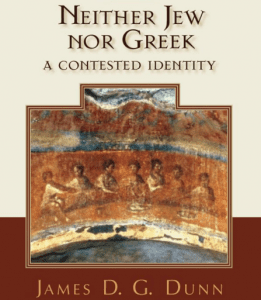 The problem with so many Christian perceptions of Jesus is that it is a “body without the cloak” — Tom Wright’s expression in his new book How God Became King. That is, if we remove the bits at the beginning and the end – namely, the bits in the creeds, all you get is:
The problem with so many Christian perceptions of Jesus is that it is a “body without the cloak” — Tom Wright’s expression in his new book How God Became King. That is, if we remove the bits at the beginning and the end – namely, the bits in the creeds, all you get is:
Jesus the revolutionary, Jesus the visionary, or Jesus the teacher of sweet reasonableness.
Wright thinks there is simply too much “unfaith seeking understanding” — a bias against the creeds and a bias against the middle bits in the Gospels. Wright thinks “it is possible to offer a historically rooted picture of Jesus that is much fuller and more positive than the one classic liberal reductionism has constructed” (29). In this, I believe Tom Wright has become the Christian apologist for postmoderns, though the word “apologist” might not even be an appropriate word for postmoderns. Still, you know what I’m saying.
Question for our day: Was the kingdom vision of Jesus necessarily theocratic? Follow up: Was the kingdom vision of Jesus naturally leading toward Constantine, which Constantine messed up, but was his vision ultimately an empire? Including a political one? A social one?
Wright weighs in briefly on the social gospel with this damning evaluation: “The problem is that, a century after the ‘social gospel’ was at its high-water mark, the world, including the Western world, still seems to be a place of great wickedness” (31, emphasis added). That is, he asks, “Has anything changed?” [This is a potent critique, but what is left standing?]
Tom says the liberal reductionism that wants nothing to do with the creeds ends up challenged by historical study of Jesus. That is, “the liberal salvo backfires, because Jesus was indeed talking about God, but was talking about God precisely in order to explain his own kingdom work” (32).
He returns to his earlier theme: “But the coming of the kingdom is conspicuously absent not only from the great creeds, but also from ‘the gospel’ as envisaged in the churches of the Reformation” (32, emphasis added). OK, those who are committed to the Reformers’ gospel need to speak up here: How are the Reformers committed to the vision of Jesus? [Luther, Calvin — Pauline, Jesus, or both? Balanced?]
Tom is convinced the liberal Jesus is afraid of one theme in Jesus: theocracy. They pushed God outside the workplace and political stage and told God off … “God was superannuated to a position of totally ineffectual ‘honor'” (34) — brilliant expression. But the whole point of the Gospels is to tell how God became king, and that means politics at some level. Jesus envisioned theocracy of a new sort. He didn’t want religion to recede into the private world — which is what Andrew Sullivan and his like want. Keep it in the private world. Os Guinness once told a marvelous tale to this effect in a book called The Gravedigger File.
The solution is not the old kind of apologetics: prove that Jesus did miracles and therefore prove he was God. It is to begin where the Gospels do: with God becoming king in Jesus.
I finish with this Tom Wright salvo:
This is the point that the four gospels are making, but that the creeds appear completely to ignore and that the Reformers and subsequent ‘evangelical’ movement have likewise normally ignored in their eagerness for ‘the gospel’ of personal salvation. The church has gone on reading Matthew, Mark, Luke, and John, but without any clue from those great creedal and Reformed traditions as to what they [must mean “the Gospels”] are actually saying” (38).
This is the forgotten story of the gospels (38).











